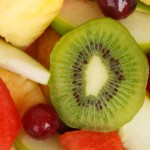I have mentioned earlier that I am a prime candidate to develop the Alzheimer Dementia disease based on genetics and family history. So I am extremely motivated to make sure that I do everything I can to delay the onset of dementia. A couple of weeks ago I shared that Exercise is one of the most important prevention methods and today we look at food in a way to prevent Alzheimer’s.
Today we look at food and how this can make a difference and help prevent the onset of dementia. In earlier blogs we have described that the brain requires large amounts of energy and that dementia develops when plagues and tangles form in the neurons in the brain. On our “What is it page” we describe how the brain cells get clogged with tangles and plaque and start to die.
There is common agreement from all experts in the field that we should focus on a eating plan (or diet if you like) which focuses on brain food. This includes foods that are high in “good fats” which includes Fish, Seeds and Nuts. In fact – many studies now confirm that the “Mediterranean-style Diet” which is high in fresh fruits, vegetables, fish and other forms of lean proteins, nuts and seeds, virgin olive oil, yogurts and natural cheese will improve your health, your brain health and as a result slow down the onset of dementia. Oh yes – the Mediterranean diet does also include a glass of red wine every day. (one glass not several).
Eating one serving of oily fish a week is associated with halving the risk of developing Alzheimer Dementia. For some people who do not enjoy eating fish, supplements of one kind of omega 3 fish oil, called DHA, have been shown to enhance memory in adults who don’t eat fish, and to prevent memory loss in those in the early stages of memory decline. But it’s not just oily fish. The more fish you eat, the better your memory test performance. Fish is also an excellent source of vitamins B12 and D, all essential for the brain. Chia and flax seeds are also an excellent source of omega 3.
Foods high in antioxidants also come highly recommended. These include berries and brightly coloured vegetables – Carrots, cauliflower, broccoli, Brussels sprouts, cabbage, spinach and mushrooms. Also very beneficial is tea (especially green tea), dark chocolate and red wine (great to see these foods are actually good for us!). Let’s not forget, too, that our brains need a minimum of six servings of fruit and vegetables per day to stay in optimal health. That is about 500 grams as your baseline daily requirement – made up of any of these fruits & vegetables.
Talking about tea just before: Green tea is associated with a lower risk of cognitive impairment. Ordinary tea drinking is also associated with better cognition. We recommend to limit coffee to one a day and drink tea, ideally green tea, instead of coffee.
Most importantly, there is also common agreement on the types of foods to avoid as these foods could accelerate the onset of dementia. This includes sugars, processed foods like white bread, regular pasta, white rice, soft drinks, etc.
Keeping your blood sugar level down, which also means you make less insulin, preserves your memory. That means avoiding sugar and processed foods (such as white bread) as much as possible and eating slow-releasing ‘whole’ carbohydrate foods such as wholegrain bread or pasta and oat cakes. Eating white bread is associated with a poorer cognitive test performance as well, while high fiber bread is associated with better performance. Eating carbohydrate foods with protein, for example brown rice with fish, or porridge oats with seeds, further reduces the glycemic load (GL) of a meal. Best fruits in this respect are berries, cherries and plums while grapes, raisins and bananas are high GL. These kinds of foods are consistent with a Mediterranean diet which has also been shown to reduce risk. Eat your fruit, don’t drink it. Many fruit juices have a lot of sugar in it. And logically, avoid fast foods as much as possible.
